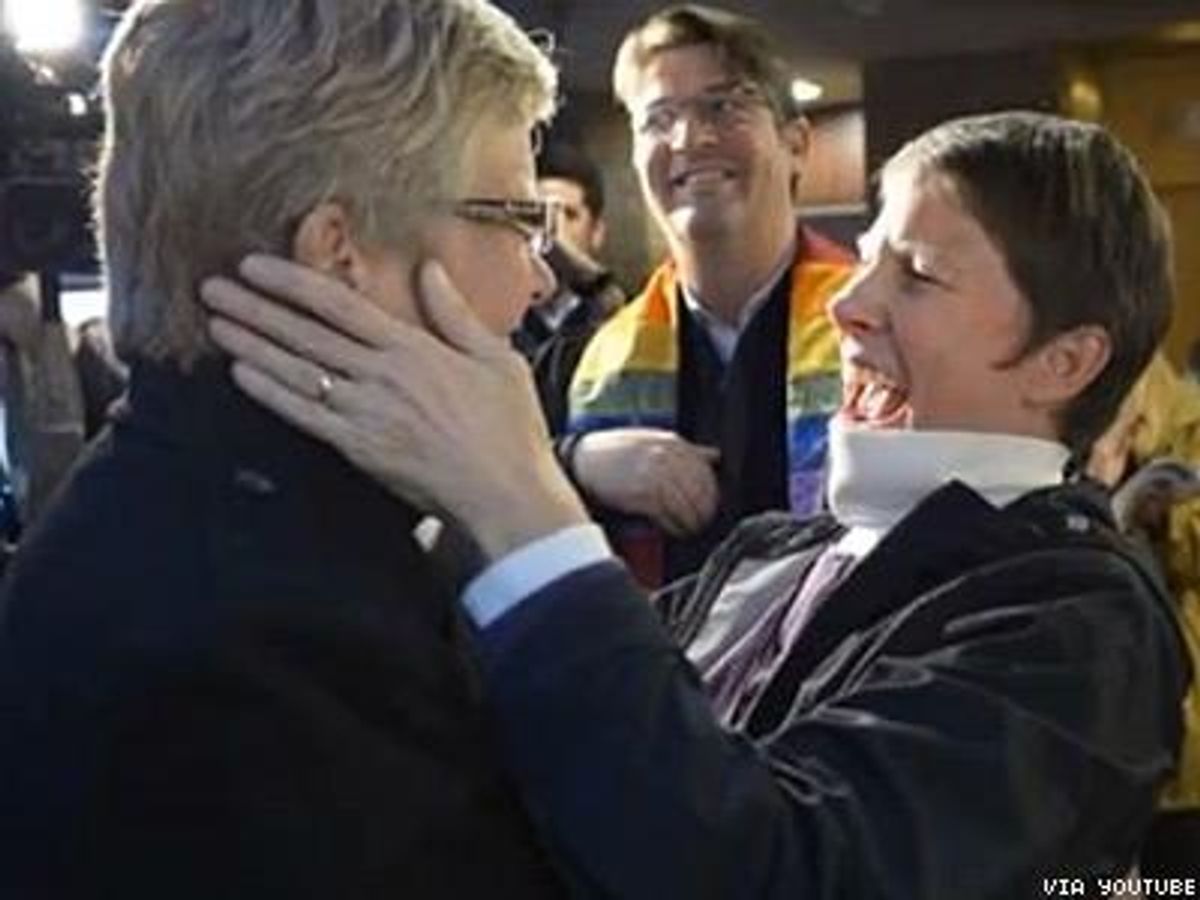The last four Utah counties that had held off on issuing marriage licenses to same-sex couples finally gave in Thursday.
Meanwhile, state officials are expected to ask the U.S. Supreme Court in the next few days for a stay of the ruling that allowed same-sex marriages to begin.
Officials in Box Elder, Utah, Plute, and San Juan counties decided Thursday to begin issuing licenses to gay couples, the Associated Press reports. They "had little choice" after a federal appeals court Tuesday refused to put a hold on U.S. District Judge Robert Shelby's ruling for marriage equality, according to the AP. Shelby ruled last week that the state constitution's ban on same-sex marriage violated couples' rights under the U.S. Constitution.
Some counties with small populations have had no license applications from same-sex couples to date, but in larger counties pent-up demand from these couples has resulted in record numbers of licenses being issued, according to The Salt Lake Tribune.
The state plans to appeal Shelby's ruling all the way to the U.S. Supreme Court if necessary, but first it is seeking a stay of it. The Utah attorney general's office will "file with the Supreme Court as soon as possible," according to a statement issued by that office, CNN reports.
The request will initially go to Justice Sonia Sotomayor because she has jurisdiction over Utah's appeals, and she could either decide on the stay herself or ask the entire court to consider the matter. Legal experts said the latter is the more likely scenario, and probably a majority of justices will vote against the stay. "On the strictly legal argument, it's hard to justify granting a stay," Cornell University law professor Michael C. Dorf told The New York Times.
On the ruling itself, Utah is preparing an appeal to the U.S. Court of Appeals for the 10th Circuit. That court has agreed to expedite its consideration of the case. If Utah loses there, it is expected to take its appeal to the Supreme Court.
After last June's landmark pro-marriage equality rulings in cases involving the Defense of Marriage Act and California's Proposition 8, the high court justices may have thought they would not hear similar cases for a few years, the Times notes. But the rapid progress of marriage equality means the court will have no respite from the issue.
On whether the court will go beyond those rulings and find a federal constitutional right to marriage for same-sex couples, Dorf said, "It's pretty clear that even the five justices who are sympathetic to same-sex marriage would rather take a few years before getting there. If their hand is forced, as it now will be, it's impossible to say with certainty what they'll do."
But Harvard Law School historian Michael J. Klarman told the Times a Supreme Court ruling for nationwide marriage equality is not out of the question. "Somewhere between the next two and six years, the court will be ready to do it, assuming the composition of the court does not change," he said.












































































